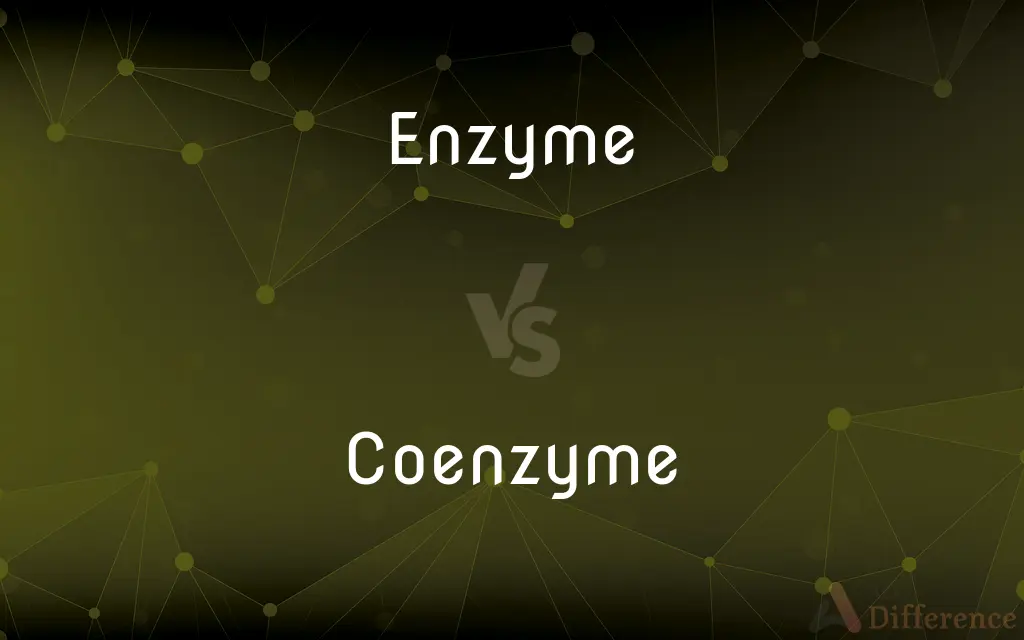Enzyme vs. Coenzyme — What's the Difference?

Difference Between Enzyme and Coenzyme
ADVERTISEMENT
Compare with Definitions
Enzyme
Enzymes () are proteins that act as biological catalysts (biocatalysts). Catalysts accelerate chemical reactions.
Coenzyme
An organic substance that reversibly combines with a specific protein, the apoenzyme, and with a substrate to form an active enzyme system.
Enzyme
Any of numerous compounds that are produced by living organisms and function as biochemical catalysts. Some enzymes are simple proteins, and others consist of a protein linked to one or more nonprotein groups.
Coenzyme
(biochemistry) Any small molecule that is necessary for the functioning of an enzyme.
Enzyme
(biochemistry) A globular protein that catalyses a biological chemical reaction.
ADVERTISEMENT
Coenzyme
A molecule that is essential for the activity of some enzymes; it may exist free in solution within a living organism, but functions by binding to an enzyme to assist in catalyzing a reaction. The molecule itself may be temporarily changed during the reaction, but is ultimately restored to its original form. Many vitamins function as coenzymes.
Enzyme
(Christianity) leavened bread, as opposed to azyme
Coenzyme
A small molecule (not a protein but sometimes a vitamin) essential for the activity of some enzymes
Enzyme
A protein produced by a living organism, capable of catalyzing a chemical reaction. Almost all processes in living organisms require some form of enzyme to cause the reactions to occur at a rate sufficient to support life. There are a very wide variety of enzymes, each specifically catalyzing a different chemical reaction, the sum of which cause the bulk of the physiological changes observed as life processes. Enzymes, like most proteins, are synthesized by the protein-synthetic mechanism of the living cell, at special sites on ribosomes, using the genetic information in messenger RNA transcribed from the genetic instructions stored as nuleotide sequences in the DNA (or in some viruses, the RNA) of the genome. Some examples of enzymes are: pepsin, diastase, rennet, DNA polymerase, invertase, glucose oxidase, protease, and ribonuclease. There are many other types of enzyme.
Enzyme
Any of several complex proteins that are produced by cells and act as catalysts in specific biochemical reactions
Share Your Discovery

Previous Comparison
Selling vs. Distribution
Next Comparison
Pulpit vs. Altar













































